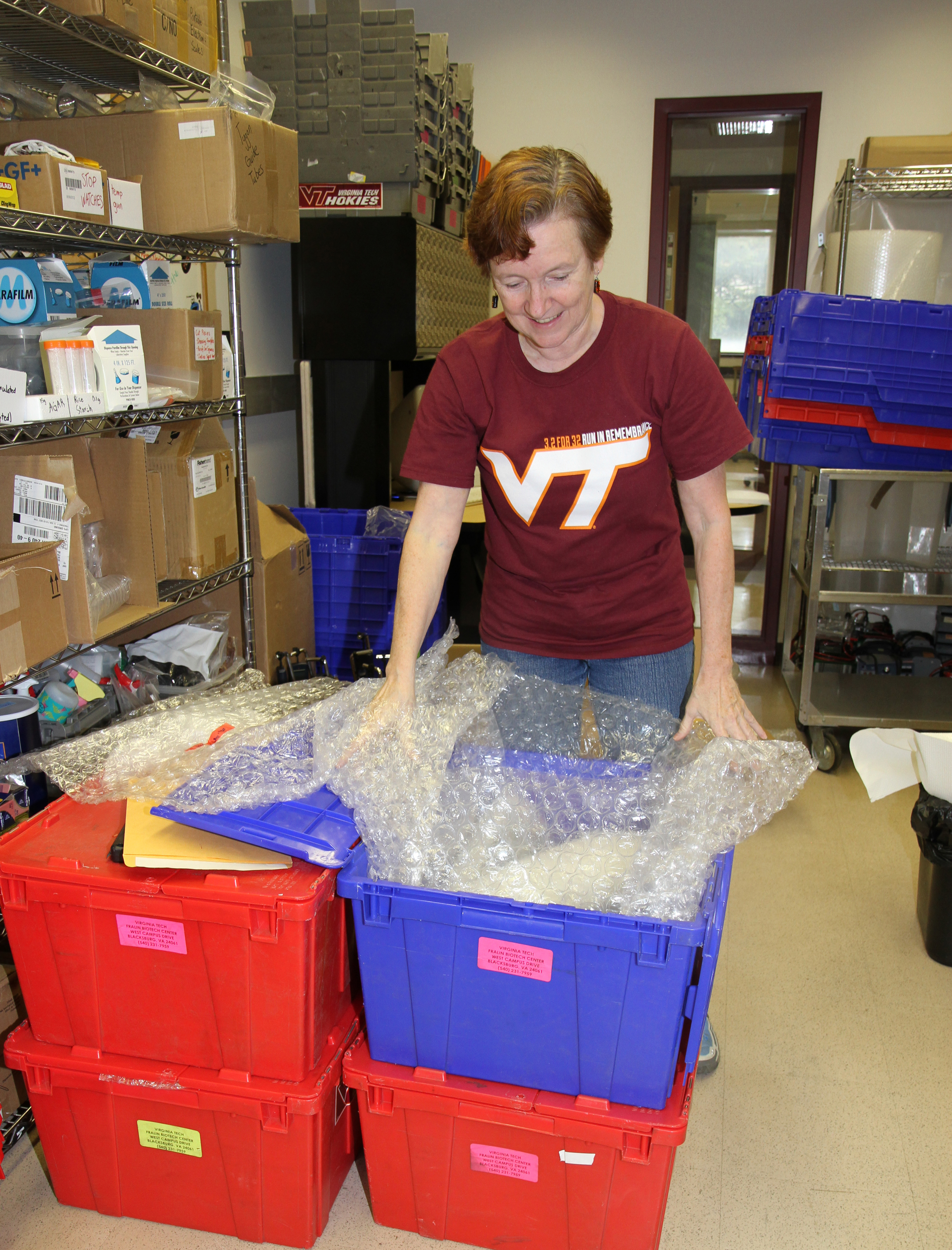New bioengineering kit available through Fralin Life Science Institute's Biotech-in-a-Box program

This year, Fralin Life Science Institute’s Biotech-in-a-Box program, with funding from the Howard Hughes Medical Institute, is introducing a new bioengineering kit that combines concepts from both biology and engineering.
The kit, which contains materials and instructions for students to run six experiments investigating the development and manufacture of wound dressings, is available to high schools and community colleges across Virginia.
The experiments, which compare materials as diverse as gauze pads and hydrocolloid dressings, examine material characteristics such as elasticity and permeability. Students must consider factors such as the type of wound being treated, the dressing’s biocompatibility, the product cost, ease of sterilization, and the environmental impact of production. The kit was specifically designed to educate students on how to determine the physical parameters of materials, and to evaluate their results in terms of the design and purpose of the dressings.
“It is not common that an engineer examines just one part of a product, and that is something this new kit showcases. It was created to familiarize students with the idea of examining products from multiple perspectives,” said Kristi DeCourcy, research associate and laboratory manager at the Fralin Life Science Institute and founder of the Biotech-in-a-Box program.
DeCourcy develops and distributes the Biotech-in-a-Box kits, which have successfully reached over 100,000 students across almost every county in Virginia since the program’s inception in 1994.
Biotech-in-a-Box is exactly what it sounds like -- boxes full of learning tools, equipped with experiments ready for classroom use. The kits are loaned to high schools and community colleges across Virginia and offer students the opportunity to use science equipment that is not readily available in the typical classroom.
The Bioengineering kit is one of six available kits; others explore DNA, protein structure, immunology, and the behavior of organisms. The kits are loaned to teachers for two weeks and are then sent back to Fralin to be prepared to go to another classroom for use. All costs for the kits, including shipping, are paid by Fralin.
More detailed information about the additional kits is provided below.
- The Protein Electrophoresis kit contains equipment and materials needed for polyacrylamide gel electrophoresis (SDS-PAGE) of proteins, and allows students to design their own experiments to answer questions on topics ranging from evolution to forensics.
- The Column Chromatography kit contains materials to purify proteins and allows students to separate proteins based on physical characteristics such as size, charge, and polarity.
- The Immunology Introduction kit contains materials to explore the use of antibodies as tools in diagnostic tests. Students learn about how disease spreads using techniques common in medical and forensic fields.
- The DNA Biotechnology kit contains materials that allow students to analyze DNA by agarose gel electrophoresis. There are ethics and CSI scenarios in the manual.
- The Caging the Blob kit contains materials needed to teach students about the survival tactics of living organisms. Students construct mazes of Lego blocks to examine how slime mold responds to physical barriers.
Each kit has a separate application and applications are accepted year-round.







